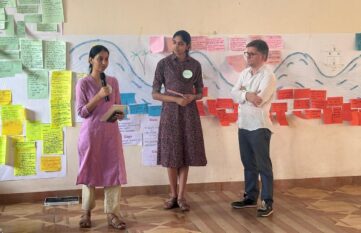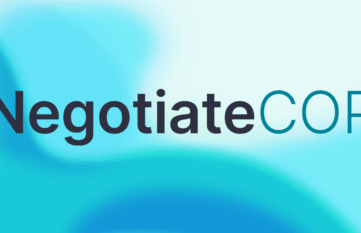UN Climate Change Conference initiates Digitalisation Day

As the recent rise of artificial intelligence (AI) has demonstrated, digital technologies are rapidly changing the world. AI is expected to double its energy consumption by 2026, according to the International Energy Agency (IEA) and to surpass global air traffic in terms of greenhouse gas (GHG) emissions unless drastic measures are taken. At the same time, there are unprecedented opportunities to use the technology as an enabler for climate action.
The strategic use of data and AI can be a critical accelerator for more ambitious NDCs through better tracking and tracing of of greenhouse gas emissions and climate finance.
Bjorn-Soren Gigler, Head of the Data Economy Initiative
The global community stands at a pivotal moment, facing both the planetary crisis and rapid digitalisation. Worldwide, power plants and data centres are mushrooming, meanwhile almost half of the population in the Global South is excluded, having no access to the Internet. In order to close digital divides, protect citizens’ digital rights and minimise environmental damage and negative climate impacts, technologies, policies and regulations need to be designed accordingly.
The first Digitalisation Day as part of the UN climate talks is a milestone as it recognises the importance of digitalisation as a game changer for the climate – moreover, it enabled the participation from digital experts of GIZ for the first time.

Digital Action Path for a Green World
On 16 November 2024, a high-level roundtable “Digital Action Path for a Green World” facilitated by the International Telecommunication Union (ITU) and the COP presidency, highlighted how digital technologies can transform climate action. Next to GIZ, more than 30 organisations and countries participated.
It concluded with the adoption of the first Declaration, which aims to catalyse a shift towards climate-positive digital development. Against the backdrop of rising global temperatures and escalating weather-related hazards and disasters, the declaration calls for industry-wide climate responsibility, and has so far been endorsed by 75 countries and over 1170 non-state entities.
It builds on Green Digital Action, a public-private initiative launched by ITU a year ago with partners worldwide, contributing to alignment between international Climate Policy and Digital Policy.
Turning ambition into action
GIZ’s Executive Director Ingrid Hoven emphasised that the Green Digital Action agenda must be translated into concrete legal frameworks and programmes on the ground. The Global Digital Compact, which was adopted at this year’s Future Summit, is an important milestone along the way.
It contains a roadmap for improving the sustainability of the sector. To leverage concrete action on the ground, GIZ, on behalf of the German Ministry of Economic Cooperation and Development (BMZ), supports our partner countries of the Global South in harnessing digital solutions to accelerate sustainable development and climate action, while mitigating its ecological footprint.
This approach of the BMZ Twin Transition Programme seamlessly aligns the implementation work with the goals of the Global Digital Compact and the Green Digital Action across its pillars. These examples show how:
- Many countries lack binding regulations and capacities for “Green Computing”. To close this gap, we have developed the “Green Data Centres” practicioner’s guide in collaboration with the World Bank and ITU, guiding investment towards greener solutions.
- Together with the European Commission and the Government of Finland, GIZ, on behalf of BMZ, launched the Digital Investment Facility (DIF) to prepare projects for green data centres and digital infrastructure programmes in Africa (Data Governance in Africa Team Europe Action).
- To support African partner countries in accessing international climate finance and achieving their climate goals, AI-based monitoring of forests (Fair Forward) is combined with climate data platforms. This integrated approach feeds high-quality data on forest carbon sinks into national and international climate data platforms (Data Economy). This is just one of over 20 AI for climate solutions GIZ and BMZ have developed with their partners.
These examples demonstrate a clear message: sustainable digital infrastructure and responsible AI tools are key to fighting climate change and thus to driving a future worth living.
We are convinced that we can only make a difference if green and digital work together to advance our climate goals.
Katja Kammerer (GIZ), during the High-Level Roundtable
GIZ representatives contributed the implementation expertise of German development cooperation in a total of seven side events. Have a look at the take-aways from the Data Economy initiative in this video message. The success of the first Digitalisation Day highlights the great potential for joint action in aligning climate and digital priorities.








